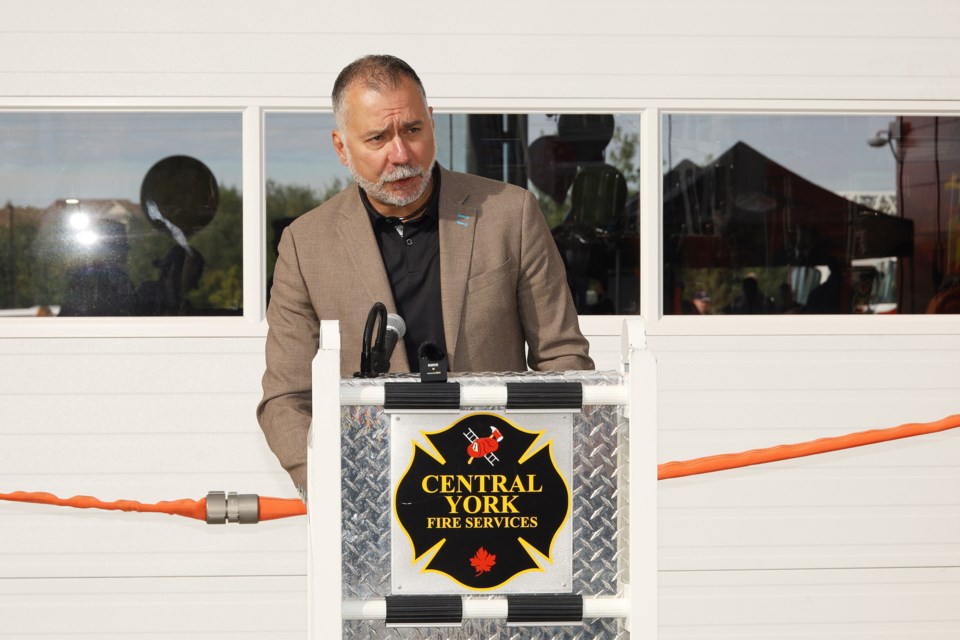Just one day after the 2022 municipal election, the Ontario government’s plan to increase housing supply came under scrutiny from municipal leaders.
The Ministry of Municipal Affairs and Housing announced details of its More Homes Built Faster Act, which will see sweeping changes to planning processes.
While the province claims it will speed up the process of making more housing units a reality with measures allowing up to three additional dwelling units to be created on a single lot, municipal leaders say it takes planning powers away from communities
“If passed, up to three additional residential units would be permitted ‘as of right’ on most land zoned for one home in residential areas without needing a municipal bylaw amendment,” said the ministry. “Depending on the property in question, these three units could all be within the existing residential structure or could take the form of a residence with an in-law or basement suite and a laneway or garden home. These new units must be compliant with the building code and municipal bylaws. These units would also be exempt from development charges and parkland dedication fees.
“Proposed changes to the Planning Act would remove site plan control requirements for most projects with fewer than 10 residential units (with limited exceptions). This would reduce the number of required approvals for small housing projects, speeding things up for all housing proposals, while building permits and robust building and fire code requirements would continue to protect public safety. Proposed streamlining changes also include focusing responsibility for land use policies and approvals in certain lower-tier municipalities to eliminate the time and costs associated with planning processes by upper-tier municipalities. This would give the local community more influence over decisions that impact them directly, clarifying responsibilities and improving the efficiency of government services for citizens.”
The plan will emphasize the building of complete, sustainable communities centred around transit by reducing approval timelines and focus, in part, on building more affordable and purpose-built rental housing across the province.
“Ontario is proposing regulatory changes to provide certainty regarding inclusionary zoning rules, with a maximum 25-year affordability period, a five per cent cap on the number of inclusionary zoning units, and a standardized approach to determining the price or rent of an affordable unit under an inclusionary zoning program. Ontario is also taking action to help streamline the construction and revitalization of our aging rental housing stock that in some cases is many decades old, grossly energy inefficient, and is starting to fail.
“Ontario is calling on the federal government to come to the table and work with us on potential GST/HST incentives, including rebates, exemptions and deferrals, to support new ownership and rental housing development. All levels of government need to work together to get more homes built and address the housing crisis.”
Affordable and attainable housing was a hot button issue in municipal elections Ontario-wide this fall, and Aurora is no exception. With that said, however, Mayor Tom Mrakas said the proposed legislation has many shortfalls, including that the legislation “effectively wipes out the power of the municipality to manage growth and development within our communities.”
For many years Mayor Mrakas has been an advocate for leaving growth and planning matters to the municipalities and, in the previous provincial government, helped successfully lead the charge to wind down the Ontario Municipal Board – a change the incumbent Progressive Conservative government reversed.
“The proposed changes outlined in the legislation being tabled are simply huge,” said Mayor Mrakas in a statement. “The legislation will remove planning responsibilities in Simcoe, Halton, Peel, York, Durham, Niagara, and Waterloo. Local Official Plans to be updated and will be approved by the provincial Minister of Municipal Affairs and Housing, not the Region. [It] limits the role of conservation authorities, in particular as it speaks to commenting on pollution and land conservation [and it] significantly reduces development charges and parkland requirements which will severely impact a municipality’s ability to provide future services, amenities and infrastructure and will negatively impact residential tax rates.”
Additional concerns include the elimination of site plan control for residential development plans of up to 10 units, that it limits the scope of site-plan control by removing the ability for municipalities to regulate architectural control and landscape design, and the elimination the need for public hearings for every development draft plan.
“While I applaud the province for taking bold steps forward to address the housing crisis affecting communities across the province, I don’t agree that a one-size-fits all approach is the way to achieve it,” the mayor concluded. “Aurora is not Toronto or Mississauga or Brampton. We are a small community where these types of ‘as of right’ decisions will have a devastating impact on our community. Instead of giving municipalities the tools necessary to incentivize the building of attainable housing, we have instead found ourselves being bludgeoned with Toronto-centric planning legislation, yet again.”
Ward 1 Councillor-elect Ron Weese also weighed in on the proposed legislation, stating that while it might result in more housing and faster development, “which is needed for a number of good reasons,” it might result in “the wrong kind of housing being built” and a “reduction in local planning attempts to control the kind of growth that residents want.”



